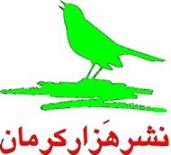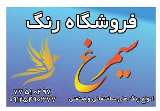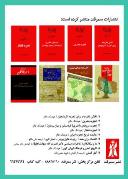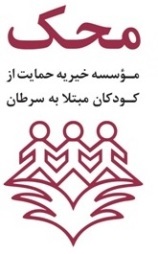Ш¬ШіШӘШ§Шұ
The Persian Poet, Nezami - A Brief Note on Iranian-ness of Nezami
- Ш¬ШіШӘШ§Шұ
- ЩҶЩ…Ш§ЫҢШҙ Ш§ШІ ЫҢЪ©ШҙЩҶШЁЩҮ, 08 Ш§ШұШҜЩҠШЁЩҮШҙШӘ 1392 05:48
- ШЁШ§ШІШҜЫҢШҜ: 7980
The name of God, the Merciful
It Is the Key to Wisdom in Full
В - The Persian Poet, Nezami вҖ“
В
В
A Brief Note on Iranian-ness of Nezami
- Seyyed Abdolmajid Sharifzadeh вҖ“
- Translated from Farsi to English by: Shaho Sabbar вҖ“
В
Thinkers, scientists, poets, theosophists, philosophers and such figures вҖ“ no matter what language they speak вҖ“ are the virtual parents of the people who were one day their fellow countrymen and countrywomen.
If a descendant of the chief of a tribe gains independence from the man tribe and builds an autonomous tribe and calls it by his name, no one can blame him; but is it acceptable for him to seize the glories and virtual heritages of the greater tribe for himself and introduce them as his own glories?
Nowadays there are many new-established countries which have been detached from greater countries through wars and treaties. Unfortunately, these countries, some of which have joined other countries and have given up whatever history, culture, literature, philosophy and myth they had, now do anything in order to build up a national identity for themselves.
An example in this regard would be helpful. Hafez is the well-known Iranian poet who lived in the 14th century. He was born in Shiraz and lived there for his whole life and passed in the same city. Now if Shiraz had become independent from Iran , could anyone have called Hafez a non-Iranian poet; even though he lived, thrived and succeeded in a city of Iran in the setting which Iran вҖҷs cultural environment provided?
In the case of Nezami (another famous Iranian poet), there is no doubt that he is from the city of Ganjeh ; even if he was born elsewhere, he lived in Ganjeh. However, Ganjeh and other cities above the Aras River were a part of Iran , until in the 18th century at the time of the Qajar Dynasty they were surrendered to the Tsardom of Russia through inglorious treaties called вҖңGulestanвҖқ and вҖңTurkmanchayвҖқ. Later on they partly changed the spoken and written language of the people of those areas.
The city of Ganjeh was a part of Iran but one cannot assume that a detached part of a body which has undergone many changes, owns all the belongings of the bigger whole. And itвҖҷs important to know that the people of those cities did not want to be separated from Iran and they accepted the allegiance to the Tsardom of Russia only because of the defeat of their country by Russia . Moreover, the greater part of the region above Aras River was called вҖң Dagestan вҖқ. After the communist system gained power in Russia they were called Azerbaijan in line with StalinвҖҷs policies so that it would make ground for separation of main Azerbaijan from Iran .
This was because, one of the major cultural and political policies of the communist Russia was to build divided nations in order to prevent a unity between the northern parts of Iran and central Asia and to drive the states in these regions into ethnical skirmishes.В Therefore, they announced the people of these regions as autonomous nations and used different cultural symbols for each of the nations to provoke their desire for cultural, lingual and literal independence.
In the case of Azerbaijan , Nezami was chosen to contribute to the process of identity-making for the nation; but since Nezami was considered Iranian it was necessary to make his nationality the same as that of the people living in Azerbaijan вҖ“ meaning the Turkish speaking people. Therefore, the cultural and literal activities started and increased in order to introduce Nezami as a Turk. Gradually the idea of Nezami being a Turk was believed by the people of Azerbaijan and their researchers started to lean toward proving that. Unfortunately, in this regard many hardline adherents of Pan-Turkism faked poems to make believe he was a Turkish speaking poet. One of the fake lines of poem which is being referred to is the following.
Pedar bar pedar mar marДҒ tork bЕ«dВ В В В В В В be farzДҒnegД« har yekД« gorg bЕ«d
It translates to the following.
My ancestors were all Turks, fathers before my father
They were like wolves in wisdom, one shrewder than the other
However, this line has two major problems. First, it doesnвҖҷt appear in any of the reliable copies of the poems of Nezami and Khamseh. Second, is has a false rhyme which is a mistake impossible to be made by the skilled poet. In (Farsi) versification, the letter k does not rhyme with g; therefore, tork and gorg do not rhyme.
There are also poems in Turkish language claimed to be written by Nezami which are easily falsified by codicology and their fakeness is obvious. Also some have claimed that a book of NezamiвҖҷs poems written in Turkish has been found; but study has proved it to belong to the Ottoman Turkish poet Nizami Qunavi who lived in the 15th century.1
Among the unscientific and prejudiced articles written in this regard, one was titled The Nizami of Azerbaijan and the World which was strongly biased and lacked any reliable resources.
One questions remains; if Nezami was a Turk, why did he dedicate most of his poems to the Iranian romantic stories such as Khosro va Shirin and Bahram Goor? This approach in NezamiвҖҷs works indicates that he nurtured in Iranian culture and naturally his poem serves the Iranian culture and thought.
Another interesting point is about NezamiвҖҷs mother. In beginning of the epopee Leili va Majnoon he introduces his mother as a Kurdish lady called Raeeseh.
Gar mДҒdare man rayД«seye kordВ В В В В В В madar sefatДҒne pД«she man mord
It translates to the following.
Raeeseh, my mother
Kurd lady who dies
Passed like a mother
In front of my eyes
From this, itвҖҷs clear that at least NezamiвҖҷs mother was a Kurd and not a Turk. Regarding NezamiвҖҷs birth place there are accounts saying that he was born in Rey or Tafresh which might be true.
The origin of the word Azerbaijan is also worth taking into consideration. Iran at the time of Achaemenid Dynasty was called Persis in Greek and Persia in English. When Iran was occupied by Alexander III of Macedon, it retained its identity. The first part of Iran which was released from the rule of the Greeks was an area of Median Satrap. Since an Iranian commander called Atpopat (AKA Atropates in Greek texts) was responsible for that, this region was called Atropatene which was changed in other languages; for example it was called Atrpatkan in Armenian and gradually through different dialects and languages it was changed to Azerbaijan.
atr originates from ДҒtar- in Avestan (the east Iranian Language) which becomes ДҒdur in Ashkani (Arsacid) Middle Persian, Ashkani Pahlavi or Parthian and Sassanid Middle Persian or Sassanid Pahlavi. In Dari Persian it is used as ДҒzar.
pat originates from pДҒ(y)- in Avestan Language and old Persian which means to guard or to protect. This verb root becomes pДҒy-pДҒdan with the same meaning in Ashkani Middle Persian and Sassanid Middle Persian and it is used as pДҒy-pДҒdan, pДҒyД«dan in Dari Persian.
Therefore, even Azerbaijan , the name of the country, has originated from Iranian languages and from the perspective of glottochronology this country has an Iranian origin. Therefore, its prominent individuals, belonged to the past, should not be considered non-Iranian.
One can also consider the issue from the aspect of NezamiвҖҷs poems. Nezami has written all his poems (validated by codicology) in Farsi and he does not have a line written in any other languages. If he was a Turk wouldnвҖҷt he have written few lines in his mother tongue?
In the poems which are proved to be NezamiвҖҷs, he has frequently mentioned Iran and has never mentioned Azerbaijan . He has shown a great respect and enthusiasm for Iran . For example in the epopee Haft Peikar or Haft Gonbad in the section of the prayers of the King Saeed Aladdin Arsalan, he writes:
hame ДҒlam tan asto Iran delВ В В В В В В В В В В В nist gЕ«yande zД«n ghyas khejel
chonke Iran dele zamin bДҒshadВ В В В В В В del ze tan beh bovad, yaghД«n bДҒshad
It translates to the following.
The words I have to share, and IвҖҷm proud to impart
The world is the body and Iran is its heart
The bodyвҖҷs great and the heart is greater
Iran is better than the whole and each part
Would any non-Iranian write such lines about Iran ? In the epopee Leili va Majnoon he also writes:
KhДҒse malekД« cho shДҒhe ShervДҒnВ В В В В В ShervДҒn che! Ke shahryДҒre Iran
It translates to the following.
HeвҖҷs the king, the king of Shervan
No, heвҖҷs greater, as heвҖҷs the king of Iran
At the time, Shervan was one of the Iranian provinces in Azerbaijan region. Nezami compliments the King of Shervan by saying that he is great as he is not only the king of one part of Iran but the whole country.
On the fact that Nezami was Iranian, other authors and scholars have written several papers and books which make it unnecessary for this author to further explain.
В
Note
В
[1] For more information, see the following.
Tabrizi, Mohammad Ali Karim Zadeh. вҖңThe (supposed) Turkish Diwan of Nizami Ganjavi!вҖқ, Iranshenasi, Seventeenth year, Volume 3, 2005.
See also:
Osman G. Oguzdenli, вҖңNezami QunaviвҖқ in Encylopedia Iranica
В
В
Bibliography
В
1. <<Geschicht Irans und seiner nachbarlГӨnder von Alexander dem Grossen bis
zum Untergang der Arsaciden>> von <<Alfred von Gutschmid>>.
2. <<Altiranisches Worterbuch>> von <<Christian Bartholomae>>.
3. <<A Word-List of Manichaean Middle Persian and Parthian, with a reverse
index by Roland Zwanziger (Acta Iranica 9a)>> from <<Mary Boyce>>.
4. <<A concise pahlavi dictionary>> from <<David Neil Mackenzie>>.
5. <<Old Persian, Grammar, Texts, Lexicon>> from <<Roland G Kent>>.







